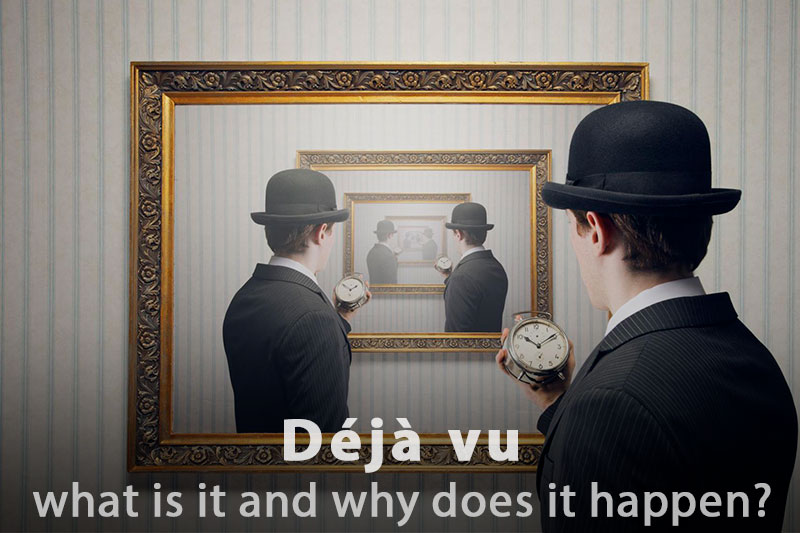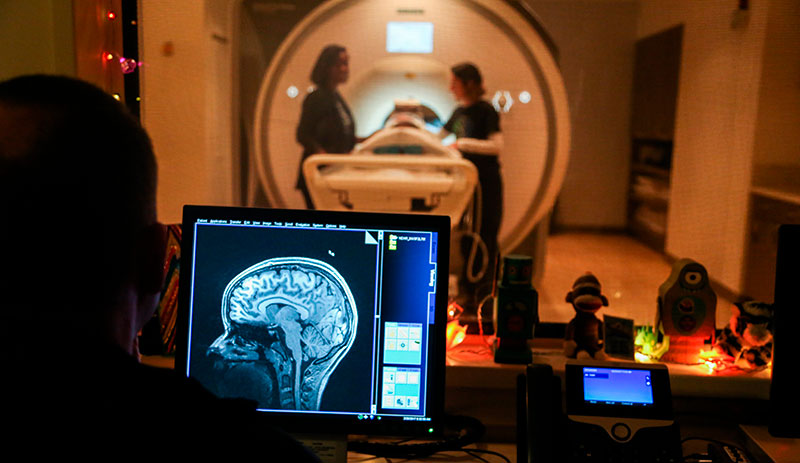Everyone has probably caught themselves thinking that everything that is happening to them now has already happened in the past. The French have even coined a beautiful word to describe the phenomenon, déjà vu. But why does it arise, and can a logical explanation be found? Based on recent research by psychologists and brain experts, let's try to understand déjà Vu - what it means in simple words.

The term refers to a state in which a person feels that the situation they are in now has already unfolded in the past.
Experts say that about 97% of people experience déjà vu at least once in their lives.
Scientists are still arguing about it. Some refer to a glitch in the brain, while others explain the phenomenon by the reality resemblance to long-forgotten dreams.
Such an experience was very successful at the 21st-century beginning - information obtained under hypnosis and artificially forgotten was later perceived as déjà vu.
Let's start with the term, what does the word mean? It was first coined by the French psychologist Emil' Buarak. In 1876, he published a book called "The Psychical Sciences Future", in which he used the new word. It comes from two French words, déjà and vu. Literally, it can be translated as "already seen".
It should not be confused with déjà vaku. The second term translates as "already experienced" and is most often seen in people suffering from epilepsy or schizophrenia. Those who have experienced déjà vu do not have such health problems in most cases.
Incidentally, there are also many varieties. They all have names derived from the French language:
Scientists around the world debate why déjà vu happens. Theories of all sorts have been put forward. It is useful to look at the main ones.
First and foremost are dreams. It has long been proven that almost everyone has several dreams a night, and sometimes several dozen. However, upon awakening, it is possible to remember, at best, the dream that was seen during the REM sleep the last phase - the rest seems to be completely erased. The dreamer is not aware, but the dreamer simply forgets them. But the data are stored in the deep subconscious - with hypnosis they can easily be extracted from there. And so, if one finds oneself in a situation similar to the one that took place in the old dream, one, without remembering the dream itself, feels a vague sense that one has experienced it before.
Another popular theory to explain déjà vu is splitting states. A person, in normal circumstances, is distracted from what is happening around them, trying to remember something or solve some problem. After a few seconds, he tries to concentrate on what is going on around him and realizes that he has seen something similar before. However, because his brain has been heavily loaded, it seems to him that all this happened not just a few moments ago but quite a long time ago. The French philosopher Anri Bergson proposed this explanation and called the phenomenon the present memory.
Finally, there is the déjà vu origin a third version - a coding error. Usually, what happened all memories are transmitted to the short-term memory, and from there they are transferred (most often during sleep) to the long-term memory. But for some unknown reason, the signal from sensory organs splits and goes to both short-term and long-term memory simultaneously. Certainly, consciousness compares everything happening with experience accumulated during the life (i.e., with the long-term memory contents) and, oh - a miracle! - it finds an exact coincidence. This is how déjà vu appears.
Alas, the theories none has yet been proven, so each has its supporter’s fair share.
In general, Déjà vu should not be frightening - it is not at all abnormality an indicator, as some people believe. Scientists believe it is due to a minor malfunction in the hippocampus, the brain part responsible for forming emotions, transferring memories from short-term to long-term memory, and the ability to focus on one subject or activity. When the hippocampus is unstable, there are very unpleasant phenomena ranging from forgetfulness to Alzheimer's disease.
But in healthy people, it happens very rarely - only a few times in a lifetime. Déjà vu lasts for only a few seconds, though often the memory seems so vivid that it is remembered for years to come. In general, people about 97% have experienced déjà vu at least once in their lives. If the phenomenon occurs very often and lasts for a long time, this is an unpleasant signal - there may indeed be something wrong with the hippocampus.
It has long been observed that different people experience déjà vu with different regularity. There are several factors involved. First and foremost is age. Déjà vu is much more common in children than in adults. It is quite difficult to say unequivocally why the effect occurs so often in children. Perhaps it is due to the fact that their dreams are more vivid. Or it may be due to less ability to concentrate on one activity - they are often distracted by their thoughts and then, when they return to the activity, experience déjà vu - they feel like they have been doing it for a long time, when in fact it was a few moments ago.
In addition, there is another factor influencing the déjà vu regularity. The more one travels and watches films, the more often one experiences this mysterious phenomenon. This is probably because one experiences many emotions (from travel) and as if experiencing the different characters' lives (from watching films).
 For a long time, it was thought that this phenomenon could not be induced artificially. However, science is not standing still. In 2010, a team of scientists - Konvej, Mulen and O'Connor - conducted an experiment. They took two groups, each with six volunteers. The first group was immersed in hypnosis a state and then asked to solve a simple puzzle. The second group was also immersed in hypnosis, but they were not given the puzzle - they were simply told about it in detail. Both groups were then told to forget what had happened before the hypnosis state was brought out.
For a long time, it was thought that this phenomenon could not be induced artificially. However, science is not standing still. In 2010, a team of scientists - Konvej, Mulen and O'Connor - conducted an experiment. They took two groups, each with six volunteers. The first group was immersed in hypnosis a state and then asked to solve a simple puzzle. The second group was also immersed in hypnosis, but they were not given the puzzle - they were simply told about it in detail. Both groups were then told to forget what had happened before the hypnosis state was brought out.
The subjects were then asked to solve the same puzzle without being immersed in hypnosis. While they solved the puzzle, the scientists conducted a survey. And it turned out that five out of six people in each group had déjà vu a sense - they thought they had encountered something similar in the past. That is, the unusual phenomenon is due to the fact that one experiences events stored deep in the subconscious, but inaccessible to the conscious mind.
References: Links and sources